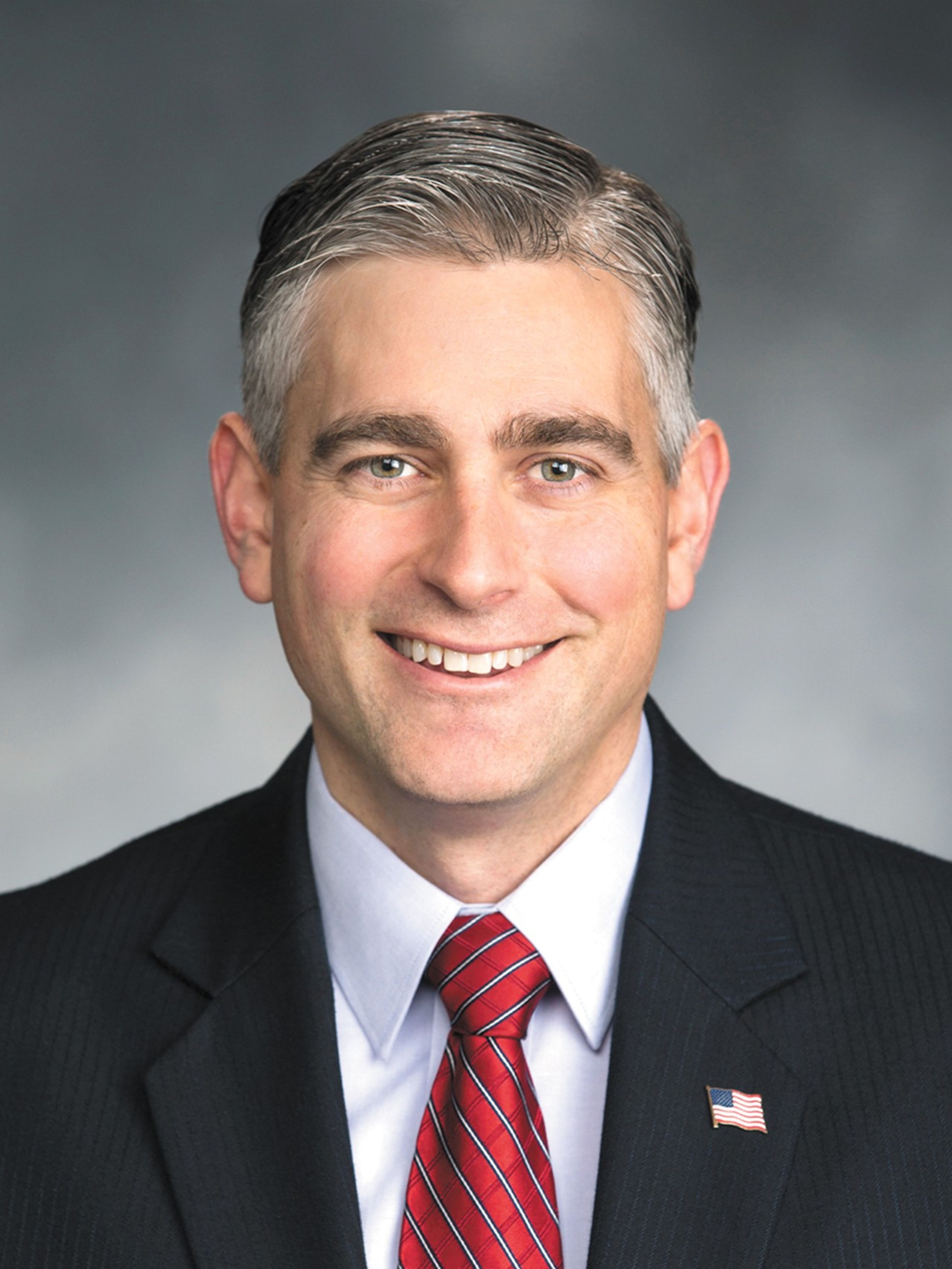Transgender bathroom bill moves onward
Measure would prohibit Idaho students from using facilities that don’t correspond to their biological sex
BOISE — The Senate Education Committee voted 6-2 Thursday to pass a bill requiring students to use bathrooms that correspond to their biological sex. Opponents said it would discriminate against transgender young people and adds to harmful rhetoric, and supporters said it would improve safety while allowing for accommodations.
Rep. Ben Adams, R-Nampa, presented SB 1100 that would designate separate bathrooms and changing facilities based on biological sex at schools but require the schools to make available single-occupancy bathrooms to those who are “unwilling or unable” to use the multi-occupancy facilities that correspond to their sex.
If enacted, the legislation would allow any student who encounters someone of a different sex while using a changing facility or bathroom to seek civil action against the school if the school gave permission to that person to use the facility or the school failed to take reasonable steps to prohibit that other person from using the facility that didn’t correspond to their sex.
The student could sue as many as four years after the incident for as much as $5,000.
“This legislation is trying to make sure that we give every child in the state of Idaho the same right to privacy,” Adams told the committee.
Those who testified in favor of the bill cited safety of students and the potential for predatory behavior. Many who testified against it said the legislation’s language would perpetuate harmful stereotypes about transgender people, who are more likely to be victims than perpetrators of violence. The majority of testimony was in favor of the bill.
Adams said the issue came about, in part, because school districts were contending with whether or not to adopt an Idaho School Boards Association policy recommendation that includes allowing transgender students to use the facility that corresponds to their identity. A recent Caldwell School Board meeting regarding the policy devolved into yelling and booing and was abruptly adjourned, KTVB previously reported. Sen. Chris Trakel, R-Caldwell, spoke at that school district meeting, saying the district would face litigation if it passed.
He told the board members, “You will face litigation. ... You call that a threat, I’m telling you that is what will happen. It’s already happened in several states and there’s already been rulings on it. So, before you waste taxpayer money, before you put a kid in harm’s way, you better throw this policy out.”
Trakel and his wife, Nicole Trakel, also spoke Thursday in favor of SB 1100.
Chris Trakel said a question he often hears is, “Why do we have to wait for somebody to be injured or hurt or raped before we implement a law?”
A trans student from Pocatello said the legislation would put him and other transgender students at an increased risk of violence.
A study by the University of California Berkeley School of Law found that transgender people are four times more likely to be victims of violence than cisgender people.
“This bill incorrectly states that trans kids using their preferred restrooms leads to cis(gender) students experiencing harassment or other terrible acts like rape,” Alex Kypyer, the Pocatello student, said. “Not only does this perpetuate the trans community as pedophiles, abusers and totally false characteristics, but legislation precedent and rhetoric that is in this bill and other hundreds of bills introduced across the U.S. isolates the trans community.”
The bill text states, “Requiring students to share restrooms and changing facilities with members of the opposite biological sex generates potential embarrassment, shame, and psychological injury to students, as well as increasing the likelihood of sexual assault, molestation, rape, voyeurism, and exhibitionism.”
Channing Cox, a substitute teacher from Twin Falls, said she felt the bill is “the best option to ensure safety and privacy” for students. She said it would make her more confident that when she allows a student to go to the bathroom, they will be safe.
Some who spoke about the bill said there are already laws on the books that prohibit the types of predatory behavior, such as assault or voyeurism, that proponents say the bill will prevent.
Boise resident Robert Jackson testified that the bill added to the Legislature’s history of writing legislation that singled out transgender people and accused the lawmakers of bullying the trans community.
“Just say the quiet part out loud,” he said.
Sen. Ben Toews, R-Coeur d’Alene, said he felt like it was clear from the reasonable accommodations portion of the bill that the author’s “heart was to protect everyone.”
Sen. Janie Ward-Engelking, D-Boise, said she agreed that every student has the right to safety and privacy but had concerns about the bill as written. She moved to send it to the amending order so some of those could be addressed.
Among her concerns were the enforcement of the legislation.
“Who will check and verify biological sex?” she asked.
She also noted that the civil action part of the legislation, especially with the allowance for action to come as many as four years after an incident, would be problematic for school districts.
Sen. Cindy Carlson, R-Riggins, said the bill will give districts clarity on how to move forward with proposed policies regarding this issue.
“These school districts are looking for direction and help, so the Legislature needs to take a stand,” Carlson said.
Amy Dundon, on behalf of ACLU of Idaho, argued the legislation isn’t defensible and that the rationale behind it relies on “hypothesizing potential harm.”
The bill will go to the full Senate for debate and vote.
Guido covers Idaho politics for the Lewiston Tribune, Moscow-Pullman Daily News and Idaho Press of Nampa. She may be contacted at lguido@idahopress.com and can be found on Twitter @EyeOnBoiseGuido.







